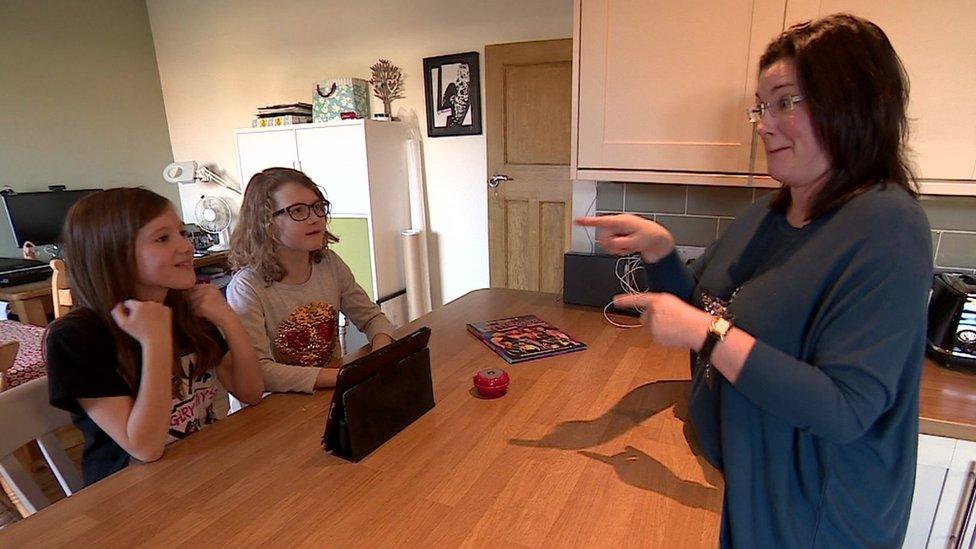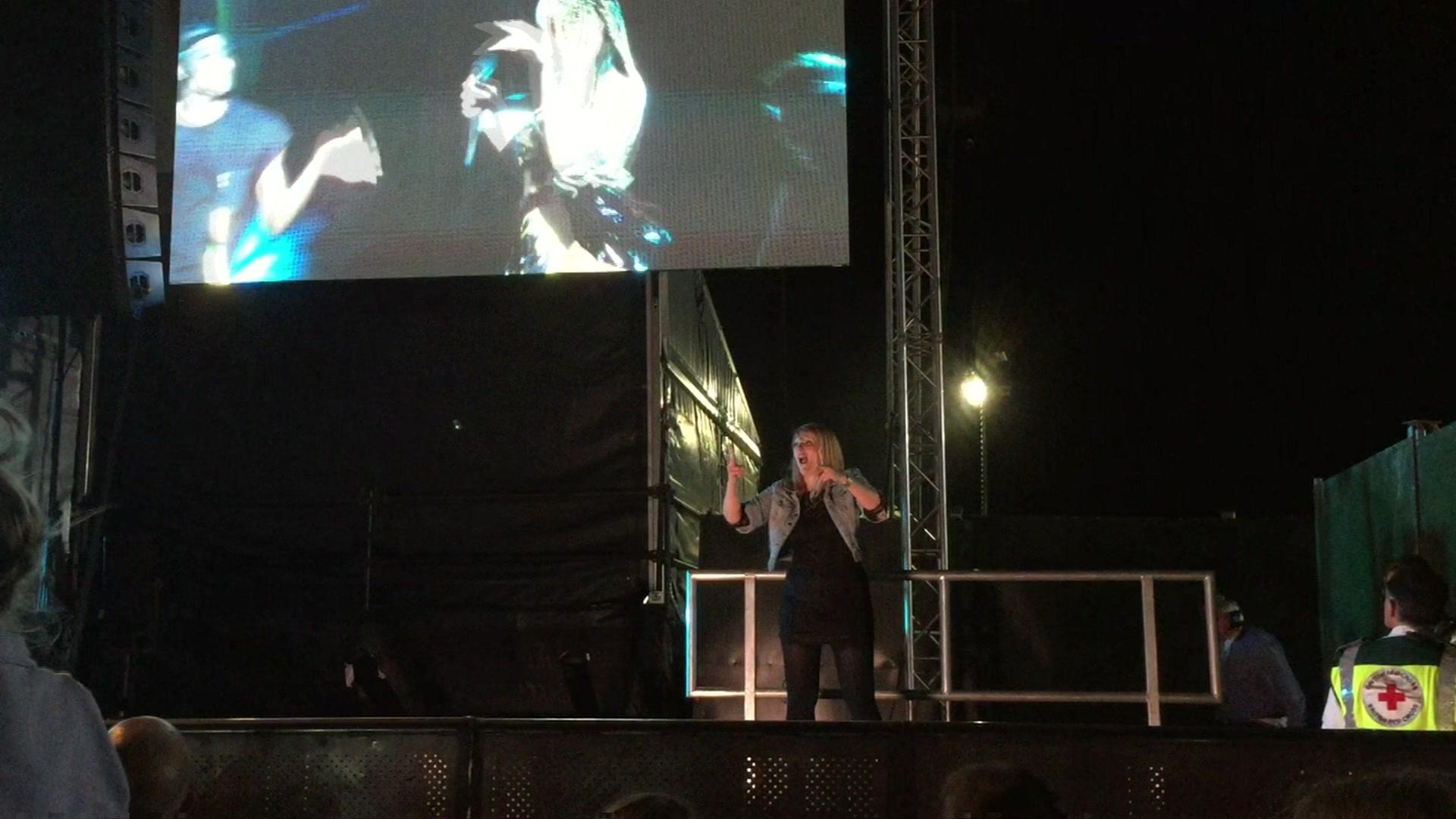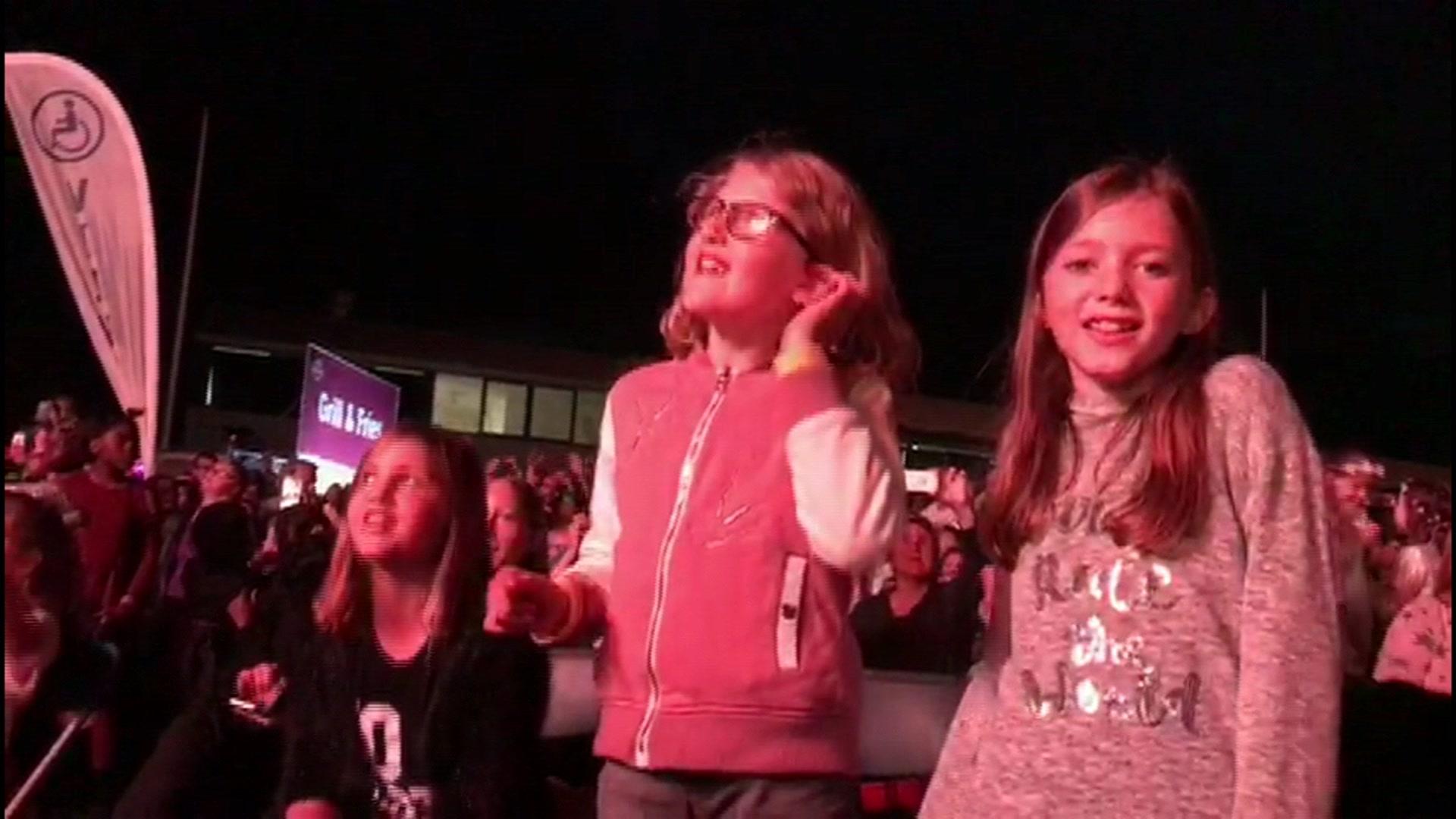Deaf mum sues Little Mix promoter in sign language row
- Published
How one mother's frustration turned into an unprecedented legal action
Eight-year-old Cate Merry and her friend Megan are big fans of Little Mix.
They've got the T-shirts, the photo albums, the CDs, can sing the songs and rock the dance routines.
So how did their love of the band lead to unprecedented legal action?

Sally and her friends wanted to share the full experience of the concert with their daughters
Last year, Cate's mum Sally Reynolds bought six tickets to see the band in concert on 1 September at the South of England Event Centre in Sussex.
Sally is deaf and booked for herself and two deaf friends to go with their daughters who are all able to hear.
In order that she and her two friends could fully access the performance, Sally asked the organisers, LHG Live, to provide a British Sign Language interpreter.
She was initially offered carer tickets and told that she could bring her own interpreter, but she didn't consider that met her needs or amounted to full access.
Speaking exclusively to the BBC, Sally explained: "We asked two or three times, please can you provide the interpreter for us, and the explanation we got back was just a 'no'.
"It didn't have any reason behind it and eventually we became so frustrated.
"I wanted to share the same experience my daughter had - essentially I just wanted access to the songs."
Legal action
Under the Equality Act 2010, any organisation supplying a service to the public is under a duty to make reasonable adjustments to ensure that a disabled person's experience is as close as possible to that of someone without a disability.
With just days to go before the concert, and no interpreter in place, Sally took an unprecedented legal step.
She decided to instruct lawyers to apply for a court injunction to force LHG Live to provide a British Sign Language interpreter.
It worked. Hours before the hearing was due to take place, LHG Live agreed.

The promoters provided a signer for Little Mix
The girls and their mums got to go to the concert and when Little Mix took to the stage their lyrics were interpreted for Sally and her friends by a specialist interpreter from the company Performance Interpreting.
However, the concert had started with two supporting acts and the interpreter had not been booked to cover them.
"I felt that we were really part of the Little Mix experience," said Sally, "but because it was so good I realised that we had missed out on the first two acts.
"So it was very much a disparity of experience compared with everyone else.
"We only got access to the last act. If you went to a film can you imagine only getting access to the last 20 minutes?
"We had paid for our tickets like everyone else."

The girls felt part of the Little Mix experience
In a statement, LHG Live told the BBC: "We received a request from Sally Reynolds to supply an interpreter.
"We consulted with her recommended agency and agreed to provide the professional interpreter of her choice for the Little Mix show.
"This included specific staging and lighting, and a set list in advance."
BBC journalist Jayde Pearson on what it's like to sign at a concert
LHG Live also provided upgraded tickets, access to private accessible toilets and all public announcements on giant screens either side of the main stage.
Sally Reynolds is now issuing legal proceedings for the failure to make reasonable adjustments, in the form of supplying an interpreter, for the whole concert.
Her solicitor Chris Fry, managing partner of Fry Law, believes the action shines a light on a wider point.
"People with sensory impairment actually want to attend musical and sporting events just as anybody else does," he says.
"The fact that you have a hearing impairment or sight loss doesn't mean that you don't want to be at the event.
"So it is important that venues and promoters recognise that the legal duties to make reasonable adjustments extend to them.
"It is an important way of making society more inclusive."
For Cate though, it's all much simpler.
"Sometimes my mum doesn't get to have the experience to go to places because sometimes there aren't interpreters," she says.
"I really love my mum, and I want her to come to the concerts with me."
A spokesman for the band said: "Little Mix strongly believe their concerts should be completely inclusive for all.
"The band welcome all fans to their shows, including those with hearing impairment, and encourage the promoters they work with to make provisions to ensure their fans can enjoy the concert experience."